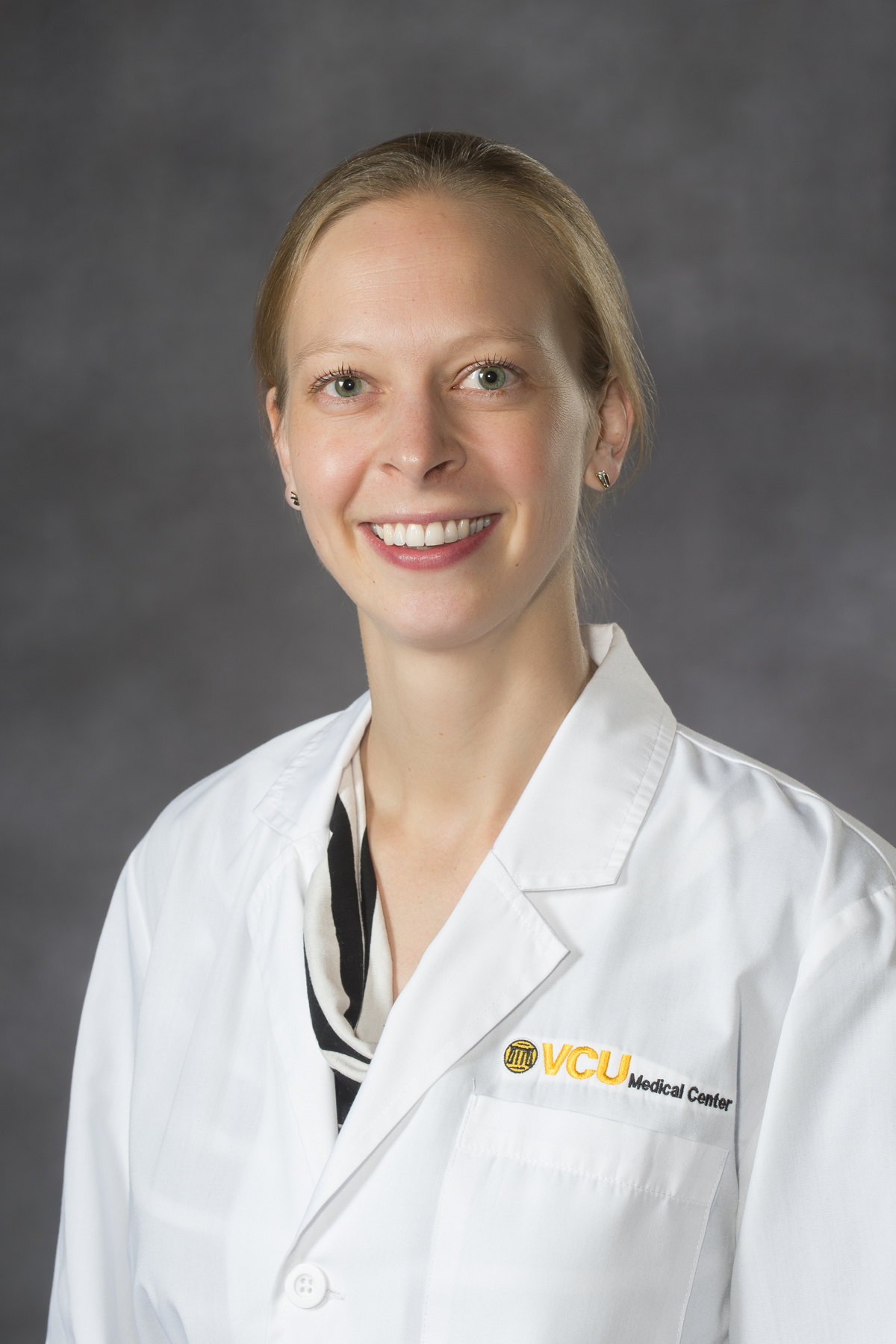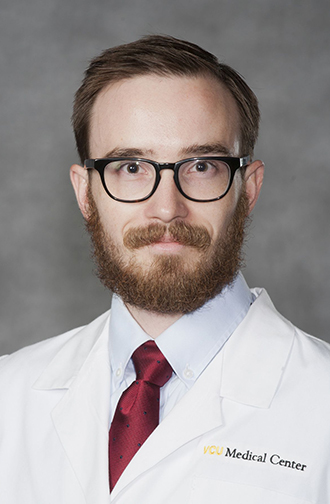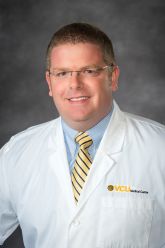Overview
The VCU Department of Radiology residency program ensures that our residents receive the most outstanding training available. Our residency program with its strong clinical training and nurturing academic medical environment develops exceptional radiologists.
The goal of our residency program is for residents to be proficient in all areas of diagnostic radiology at the completion of their training. Our expectations for residents include developing clinical maturity and judgment, and technical skills to independently practice radiology.
Residents have the opportunity to work with patients at the VCU Medical Center and the Hunter Holmes McGuire Veterans Affairs Medical Center.
The VCU Medical Center is one of the largest and most sophisticated medical university complexes in the United States and the Hunter Holmes McGuire Veterans Affairs Medical Center is one of the Veterans Affairs flagship hospitals.
Residents also work with patients at several VCU Health facilities:
- Adult Outpatient Pavilion (AOP)
- Baird Vascular Institute
- Children's Hospital of Richmond at VCU (CHoR)
- Short Pump Pavilion
- Stony Point
The VCU Department of Radiology residency programs continue to attract residents who graduate at the top of their medical school classes. Graduates from our residency programs are recruited to competitive fellowships and medical practices.
The radiology residency program provides thorough and intense training in all subspecialties and advanced subspecialties of diagnostic radiology, including:
Subspecialty Training
- Angiography and Interventional Radiology
- Neuroradiology
- Gastrointestinal Radiology
- Genitourinary Radiology
- Computed Tomography
- Nuclear Medicine
- Pediatric Imaging
- Breast Imaging
- Ultrasound
- Cardiovascular and Thoracic Imaging
- Musculoskeletal Imaging
- Magnetic Resonance Imaging
Advanced Subspecialty Training
- Cardiothoracic Imaging
- Non-Vascular Interventional Radiology
- Musculoskeletal (MSK) Ultrasound
- Uterine Fibroid Embolization
Rotations
Monthly rotations through the subspecialties of radiology.
Each year of the residency program there are monthly rotations through the subspecialties of radiology. Rotations early in the training program help residents acquire basic knowledge. Subsequent rotations increase residents expertise and responsibilities.
All cases are reviewed with a faculty member and every case has the potential to be a teaching case.
All residents are required to have a current certification in advanced cardiac life support (ACLS) -- a course that is provided by VCU Health.
During the first year of training, residents learn basic radiologic disciplines. They develop interpretation skills for clinical imaging and non-imaging studies. They also gain experience in performing procedures and therapy with constant daily supervision by attending physicians.
Residents rotate for one month through each of the core subspecialty at the VCU Medical Center. An attending faculty member is present and available at all times during the workday.
Rotations include body CT, chest, emergency, gastrointestinal/fluoroscopy, interventional radiology, musculoskeletal, neuroradiology, nuclear medicine, pediatrics and ultrasound.
Each January, the American College of Radiology diagnostic radiology in-training (DXIT) examination is administered to all first, second and third-year residents.
During the second year of training residents refine interpretation skills for imaging and non-imaging studies, and develop expertise in performing procedures and therapy. Residents begin to rotate on the non-vascular interventional (NVIR) service performing ultrasound and CT-guided procedures. Resident independence steadily evolves during this year.
On average, second and third year residents spend 60 percent of their time at the VCU Medical Center and 40 percent at the Hunter Holmes McGuire VA Medical Center. Rotations at the VA include:
- Interventional Radiology
- Nuclear Medicine
- Neuroradiology
- MRI (Abdominal and MSK)
- Gastrointestinal/Fluoroscopy
- CT (including CT procedures)
- Emergency/Inpatient
The first three years of residency, sectional rotations repeat with increased graded responsibility for patient care examinations and procedures. Residents eventually run radiological services, protocoling and patient scheduling.
After 35 months of diagnostic radiology training residents take the American Board of Radiology (ABR) Core Exam.
Third-year residents attend the four-week Radiology Pathology Correlation course offered by the ACR Institute for Radiologic Pathology (AIRP).
Fourth-year residents enjoy a significant reduction in call responsibilities. Residents also have the opportunity to design their own mini fellowship. On average, each resident has 6 or 7 two-week blocks of night call during their residency training.
Graduate Medical Education Resources
Visit the VCU School of Medicine Graduate Medical Education Applicant Resources web page for salary, contract, benefits, and policies. Examples of program-specific benefits, include:
- Protected daily teaching
- Board preparation
- Grand rounds
- Meeting attendance and journal club
- Orientation
- Moonlighting policies
- Lead radiation protection apparel
- Electronic radiology resources
Financial support is available for housing, meetings, and American Institute for Radiologic Pathology fees.
Graduate Medical Education Applicant ResourcesHow to Apply
All applicants must have a minimum of three months of U.S. or Canadian direct patient care activity. Non-clinical graduate work in the U.S. or Canada does not meet the requirement. For U.S. and Canadian medical students, clinical rotations during medical or dental school will meet this requirement. Externships of direct patient care will meet the three-month requirement, however observerships and research fellowships do not qualify. Please note that observerships and externships are not available in the VCU Department of Radiology.
For more information about resident eligibility and selection policies, please visit Graduate Medical Education Applicant Resources.
Residency Education Program Directors
The structure and educational objectives for the radiology residency program support it's primary goal and expectations. The program design provides residents with clinical responsibilities that progressively increase throughout the training. Program directors ensure radiology residents receive outstanding training opportunities while gaining responsibility and independence.

Josephina A. Vossen, M.D., Ph.D.
Associate Professor

Josephina A. Vossen, M.D., Ph.D.
Associate Professor
Radiology
Associate Professor
Chief, Musculoskeletal Imaging and Intervention
Director, Musculoskeletal Imaging and Intervention
Director, Residency Education
Associate Director, Integrated Interventional Radiology Residency Program
Medical Director, MSK, Stony Point Radiology
Phone: (804) 628-1989
Fax: (804) 628-1132
Email: josephina.vossen@vcuhealth.org
Address/Location:
West Hospital, East Wing

Ryan Clayton, M.D.
Assistant Professor

Ryan Clayton, M.D.
Assistant Professor
Radiology
Assistant Professor
Associate Director, Residency Education
Phone: (804)- 828-7975
Fax: (804)-628-1132
Email: ryan.clayton@vcuhealth.org
Address/Location:
Main Hospital, Room 3-407C

J. Britt Groseclose, D.O.
Assistant Professor

J. Britt Groseclose, D.O.
Assistant Professor
Radiology
Assistant Professor
Associate Director, Residency Education
